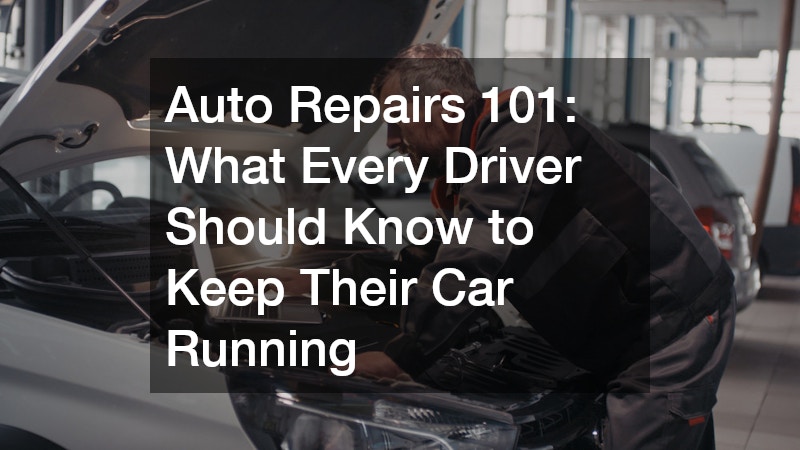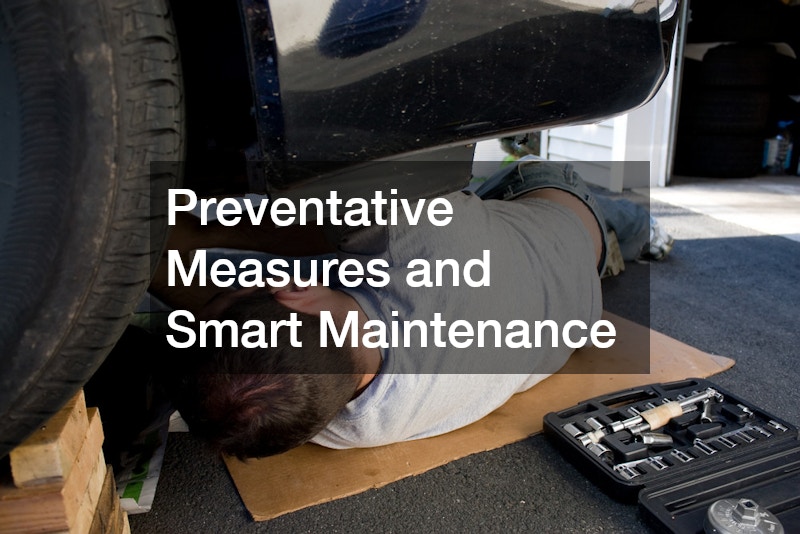
Auto Repairs 101 What Every Driver Should Know to Keep Their Car Running

Understanding the basics of auto repairs is an essential skill for every driver. Knowing how to troubleshoot common issues, perform routine maintenance, and address unexpected breakdowns not only extends the life of your car but also saves money on expensive repairs. This article aims to equip you with the knowledge needed to keep your car in optimal condition.
Regular Oil Changes: Frequency and Benefits
Regular oil changes are crucial to maintaining engine health and efficiency. Typically, it’s recommended to change your oil every 3,000 to 5,000 miles, depending on your car model and driving conditions. By maintaining a schedule, you’ll ensure that your engine is running smoothly and that oil sludge does not accumulate.
Look for signs like increased engine noise or dark, dirty oil on the dipstick as indicators that an oil change is due. Ignoring these signs can lead to significant engine wear and potentially costly repairs down the line. Furthermore, regularly changing your oil can improve your car’s fuel efficiency, saving you money at the pump.
Tire Care: Rotation, Balancing, and Alignment
Proper tire care is essential for vehicle safety and performance. Rotating your tires every 6,000 to 8,000 miles promotes even tire wear, extending their lifespan. When tires wear evenly, they provide better handling and improved traction, which is crucial for safe driving.
In addition to rotation, balancing your tires eliminates vibrations that can affect ride quality and suspension. Balanced tires prevent uneven tread wear, which can lead to premature tire replacement and compromise safety. Proper alignment ensures that tires meet the road at the correct angle, avoiding excessive wear and strain on suspension components.
Fluid Checks and Replacements
Your vehicle relies on various fluids, each playing a vital role in its operation. Regularly checking and replacing fluids like coolant, brake fluid, and transmission fluid is key to preventing mechanical failures. Ignoring low or dirty fluids can lead to overheating, brake failure, or transmission issues.
Coolant helps maintain engine temperature, especially during extreme weather conditions. It’s important to replace old coolant to avoid corrosion and ensure your engine doesn’t overheat. Brake fluid is equally critical, as contaminated fluid can reduce braking efficiency, posing a safety hazard.
Unusual Sounds and Their Meanings
Unusual sounds from your car can often be the first indicator of trouble. Squealing or squeaking, especially when braking, could suggest worn brake pads. Ignoring these sounds may lead to rotor damage, which is costlier to repair.
A knocking sound from your engine could indicate a problem with the crankshaft or cylinder assembly. Such sounds should be checked immediately to prevent further damage. Similarly, a grinding noise may suggest issues with the transmission or wheel bearings.
Warning Lights and Their Importance
Your dashboard’s warning lights are an important communication tool between you and your car. The check engine light, for example, can indicate a myriad of potential issues ranging from a loose gas cap to serious engine malfunctions. Ignoring this light, especially when blinking, could lead to severe engine damage.
Other important lights include the brake warning light, which may suggest a brake system issue, and the oil pressure warning light, indicating low oil levels or pressure. These lights serve as alerts to prevent further damage if addressed promptly. Understanding your car’s dashboard warning signals allows you to act quickly, potentially saving you from costly repairs.
Visible Changes: Leaks, Smoke, and Smells
Visual signs like leaks, smoke, or unusual smells are often warnings that something is amiss under the hood. Oil or coolant leaks can quickly lead to major engine issues if not addressed promptly. Identifying the source of the leak can prevent larger mechanical failures.
Smoke emanating from the exhaust might indicate an issue with the fuel system or an engine oil leak. While some exhaust smoke might be normal, thick black or blue smoke usually signals that it’s time for a checkup. Similarly, unusual smells, such as burning rubber, might point to overheated components or slipping belts.roper knowledge can result in further damage. By sticking to simpler tasks within your capability, you can effectively reduce repair costs and increase your confidence in handling your vehicle.
Preventative Measures and Smart Maintenance
Preventative maintenance is the key to keeping repair costs low and avoiding unexpected breakdowns. Simple actions, like keeping your car clean, can prevent rust, while regular checkups ensure everything is in good working order. By anticipating potential issues and addressing them early, you avoid costly repairs down the line.Maintaining a consistent maintenance schedule, as outlined in your vehicle’s manual, can prevent many common mechanical problems before they arise. Frequent inspections of belts, hoses, and other critical components can reveal wear and tear that might not be immediately noticeable. Addressing these potential problems proactively leads to significant savings over time.
Maintaining your vehicle through proper understanding of auto repairs aids in prolonging its lifespan and ensuring safety on the road. By regularly performing routine maintenance, recognizing signs of necessary repairs, and being smart about costs, every driver can successfully manage their car’s health. Knowledge is empowerment, and being informed about auto repairs is a vital step in vehicle ownership.



